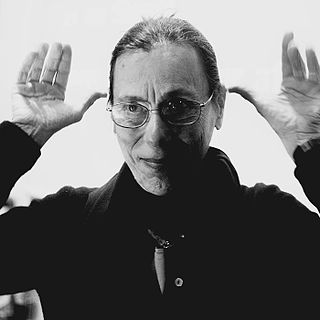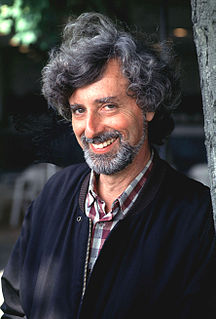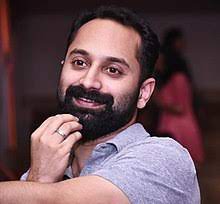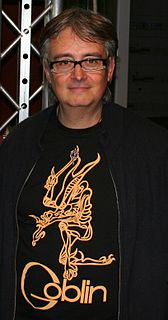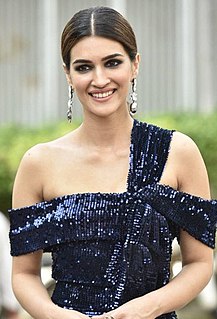A Quote by Darren Aronofsky
Film is a great tool to play with time, going back and forth through time, or speeding time up and slowing it down and do stuff like that. That's something you can't experience in real life that you can experience on film, and it takes you to a different place.
Related Quotes
To live means to experience-through doing, feeling, thinking. Experience takes place in time, so time is the ultimate scarce resource we have. Over the years, the content of experience will determine the quality of life. Therefore one of the most essential decisions any of us can make is about how one's time is allocated or invested.
I should say that feminism gave me permission to deal with my own emotional life and put it up front in certain ways, or use film as a way to examine, at that time, my own heterosexual experience. Lives of Performers was the beginning of that kind of investigation. But also, the film was influenced by the aesthetics and structures of experimental film as that was taking place at the same time. Hollis Frampton was a big influence on me at that time.
I'm planning some films in the U.K., and it will have pros and cons. It takes a lot more time to set up a film in the U.K., because you can't rely on much. In Greece, friends show up and bring what they can and you make the film. Well, that's a bit simpler than how it really is. But when you make a film with proper industries, it takes more time to synch all these things.
You can probably ask any actor: every time you start a new film, it's literally like your first movie. Everyone, regardless of the filmmaker being a debutant or a veteran, takes their time to settle down when you begin the shoot together. It's like all of us have moved into a new house, and we are setting up the place.
You know, in an ideal world, people would just be intrigued and go and see a film without knowing anything about it, because that's where you're going to have the most experience of a film, the biggest, the most revelation of a film. But at the same time, I think there are benefits of having seen a trailer where you actually look forward to seeing moments in a film knowing that they're coming up. I don't know which is better.
The thing about acting is even if you get technically more skilled at what you do, every time you begin a film or a play you're terrified. You don't know if you're going to pull it off. Every film and every story has its own set of challenges. I've never felt like, oh yeah, that's it, nailed it! You can never sit and rest. That's why it's such an exciting job. It's beginning again every time you begin again. New story, new character, new place, new time, new director. It's like moving to a different planet and trying to figure out how to live there.
That's the great thing about being an actor: Stuff shows up that you never thought was going to go down. You get to play or experience an area of the world that - you know, I live a pretty simple life, I'm not much of an adventurer. I like my couch and my television. So when stuff comes up in the job, it's a good deal.
Sometimes the best set experiences make for the worst films. So, you don't want it to be too good an experience! But the bulk of your life is working with people and collaborating so you don't want anyone to be miserable on your film either. You want it to be something that people walk away from saying that it was a good experience for them and hopefully a good film. As a director, you are sort of leader of that troupe for that period of time, so you're aware of morale and your effect - how you are as a person and how that sort of trickles down to everyone else.
Film and television are very different. On the TV show, we do seven or eight scenes a day, so time and money are of the essence, and we have zero room for creativity because you've got to do each scene in only five takes. Whereas, on a film, you have an entire day to film one scene, so you have so much time to choose how you want to fill in a scene.
I realize I have a lot of amazing opportunities, but I don't know how you can play a human being going through real human experiences without being able to walk down the street. If you can't live a real life, how do you play a real person? It always confuses me when actors work back-to-back-to-back with no break. If you live your life on a film set, how the hell can you relate to real people? You don't know what its like to not have people fussing over you all day, and that's not life - that's silly movies. I will always want to take breaks and I wouldn't be OK with losing that.


